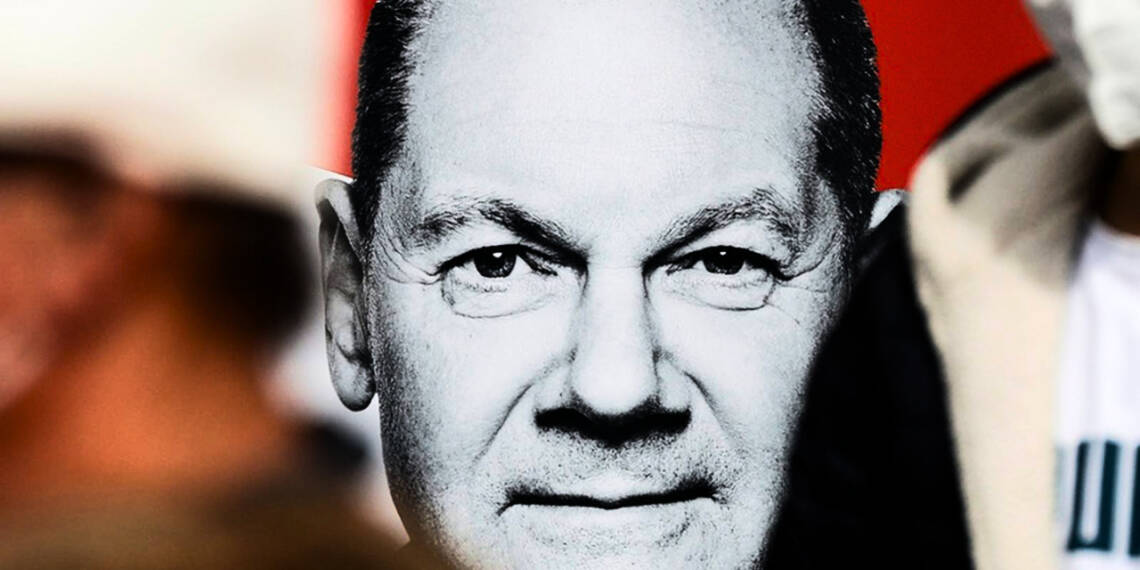Unpopular leaders seem to have a knack for attracting attention – even of the deadliest kind. Throughout history, they’ve been like magnets for assassination attempts. The combination of widespread dissatisfaction, political volatility, and the belief that removing such figures could somehow spark positive change has time and again driven individuals and groups to resort to violence.
From Julius Caesar dodging knives to Abraham Lincoln facing a fatal gunshot, from Mahatma Gandhi’s nonviolent struggle to Martin Luther King Jr.’s civil rights crusade, leaders with controversial stances or fervent opposition have often been prime targets.
But hold on, because this week, the world nearly welcomed another contender to this macabre list. In an unexpected plot twist, the spotlight was almost stolen from the likes of Biden and Putin, only to focus on German Chancellor Olaf Scholz.
Germany’s political arena isn’t unfamiliar with turmoil, and this time, it took a chilling turn. The German domestic intelligence agency, the BfV, is allegedly investigating into a conspiracy linked to none other than Olaf Scholz’s assassination.
The Assassination of Olaf Scholz
Reports suggest that the former head of the BfV, Hans-Georg Maassen, might be involved in this dark web of assassination plot. The agency has supposedly requested data on Maassen from the German Federal Police (BKA), all while untangling a web of connections to the Reich Citizens conspiracy case. The details sound like something straight out of a crime novel, only scarier because they’re real.

This isn’t Scholz’s first rodeo with assassination threats. Back in December 2022, a group of alleged coup plotters were apprehended across Germany. Their sinister plan? Storm the parliament and bid farewell to Scholz. Thankfully, their plans remained confined to the shadows.
Now, we are not saying that the assassination attempt of a democratically elected leader is justified. But, Scholz himself is responsible for the chaos he is landing up into. Let’s backtrack a bit.
Read More: If Scholz actually bans the AfD, Germany will implode
Part of the Problem, Scholz!
Olaf Scholz, once Germany’s golden boy, has been experiencing a Titanic-level fall from grace. From a 60+ approval rating in May 2022 to a whopping 78% disapproval a year later, his popularity graph reads like the aftermath of a stock market crash.
So, what’s caused this unprecedented plunge? Well, Merkel’s former right-hand man, seems to have stumbled into a rabbit hole of his own making. The Ukraine war dealt him a wild card he hadn’t anticipated, leaving him steering a ship through choppy waters.

The problem isn’t just that Scholz became an unpopular leader; it’s that he continued to play by the same rules that had irked the populace. When he should have been pivoting, he chose to replicate Merkel’s playbook – a move that, in hindsight, seems about as sensible as trying to navigate a minefield in a blindfold.
Scholz’s departure from the CDU alliance and his subsequent fling with the Greens and FDP was supposed to herald change. Instead, it’s been more of the same. The economy took a nosedive, crime rates soared, and the cost of living became the elephant in every German household.
Read More: The Germany of 2025- No NATO, No Liberals and No Scholz
The Nightmare of Germany
Yes, the economy hiccupped and crime statistics hit the roof, but hey, let’s not forget the pièce de résistance – his continuation of the refugee intake.
Merkel’s migrant policies had already sown discord, but Scholz thought, “Why not add some more spice to the mix?” And so he did, ushering in Ukrainian refugees like a host inviting guests to a chaotic party.

The very things he pledged to fix have worsened under his watch. It’s almost as if he was determined to prove his inadequacy.
A touch of poetic justice, perhaps? Amid this turmoil, the clock is ticking on Scholz’s political tenure. 2025 looms as a reckoning year, poised to bring Germany a new leader – one, hopefully, with better alternatives and a keener sense of direction.
Read More: Germany’s quest of keeping NATO hostage to the US
The tale of Olaf Scholz will always serve as a cautionary tale, a reminder that leadership is a tightrope act and not everyone has the guts to do it with grace. An unpopular leader clinging to a sinking ship isn’t just a tragedy – it’s an invitation for the ghosts of history to add another chapter to their book of sinister attempts.
Watch More:








